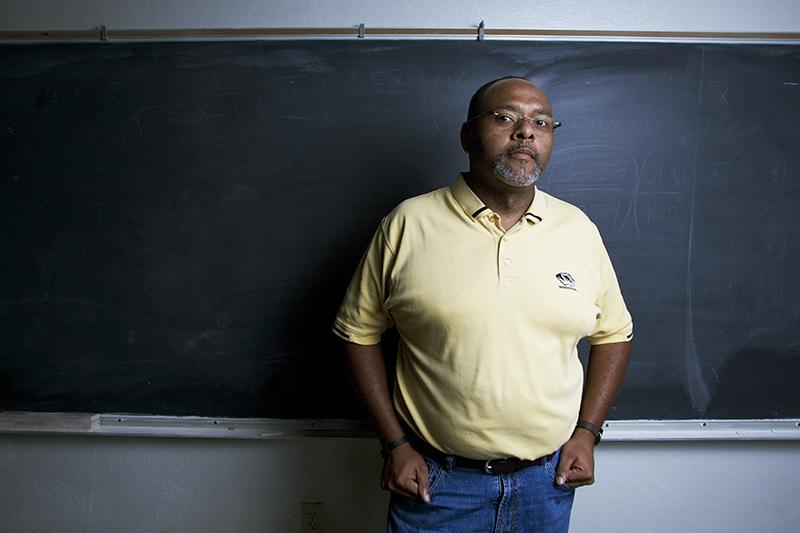The American Journalism Historians Association honored Earnest Perry, School of Journalism associate professor, with its National Award for Excellence in Teaching.
Perry will collect the award in New Orleans at the AJHA’s annual convention later this month.
The award “honors a college or university teacher who excels at teaching in the areas of journalism and mass communication history, makes a positive impact on student learning and offers an outstanding example for other educators,” according to the [AJHA website](http://ajhaonline.org/).
Perry said he never imagined he would one day receive the award.
“The (AJHA) Committee Chairman left me a message saying, ‘Hey, I need to talk to you,’” Perry said. “We basically played phone-tag for about a day, and when I finally talked to him, he told me that I’d been selected by the committee to receive the award.”
Perry said he was ecstatic to hear he had won, but also said he is not the only one who deserves credit.
“To be recognized by your peers for something that you’ve done is rewarding, but then again, I also realize that it’s not just about me,” Perry said. “It’s the students that I’ve taught, and my colleagues here at the J-School, and others that I’ve worked with around the country who have helped me in terms of mentoring and assisting, and that sort of thing that’s really helped.”
Aimee Edmondson, assistant professor at Ohio University, nominated Perry for the award. She said he was a great mentor for her.
“I was a journalist for about a dozen years before I met him, so when I returned to graduate school, I was looking for guidance relating to joining the academy as a professor,” Edmondson said. “In short, (Perry) taught me how to take my skills as a journalist, the writing and research, and build on those to become a faculty member teaching, among other things, journalism history.”
Despite his credentials as an instructor, including serving as coordinator of the J-School’s doctoral teaching program, Perry said it was not his initial plan to become a teacher.
“When I came here in ’93, I was teaching at the Missourian, which is more of a skills-based newsroom environment,” Perry said. “The plan was just to get my graduate degree and to go back and work either as an editor or a senior reporter.”
But Perry said he changed his mind.
“Once I got into teaching and working with students, I sort of fell in love with it,” Perry said.
Perry said he would describe his teaching style as conversational and engaging, with a lot of give-and-take.
“My teaching style is to try to provide information that students can relate to and present it in a way that they can readily receive it in,” Perry said. “I try to present content in a conversational way, and I think that helps the students engage in class.”
Edmondson said Perry’s one-on-one work with her was a boon to her development as a journalist.
She said Perry gave her guidance when she couldn’t figure out what to study before she started graduate school in 2005.
“He guided me, mostly in a one-on-one capacity, and helped me through the process of choosing the appropriate courses for my interests, teaching me how to historical research, working with me through the dissertation process and then advising me as I interviewed for faculty jobs elsewhere,” Edmondson said.
Perry said he is grateful for the award, but still aims to improve as a teacher. He said he tries to get better with every semester.
“Though I’m humbled by the award and grateful to receive it, I will continue to assess my teaching and always try to be better,” Perry said.








